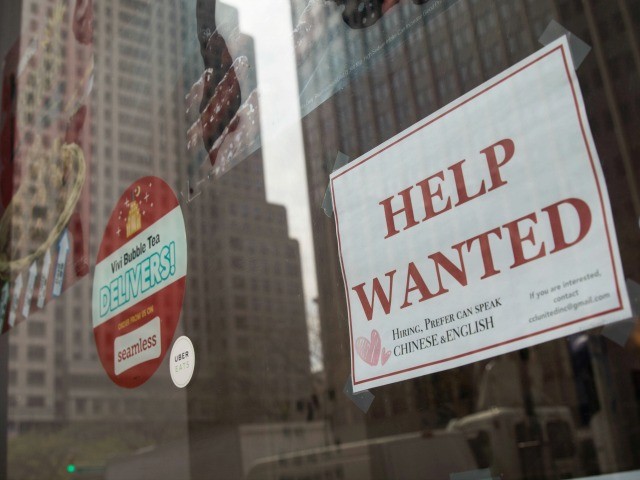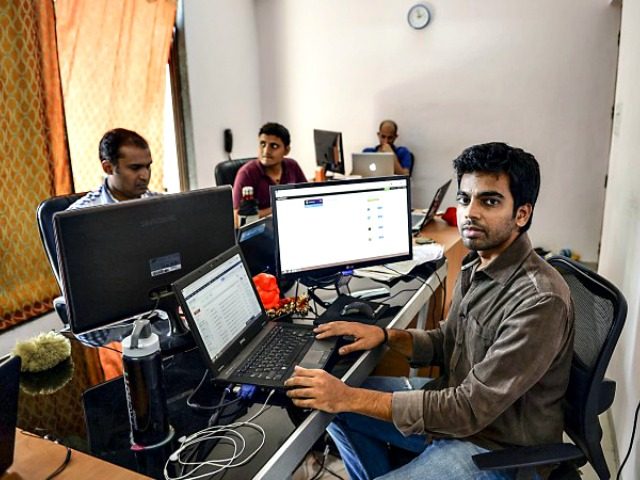Democrats are openly arguing that more wage-cutting migrants should be imported to shrink the inflation that is threatening President Joe Biden’s political future.
The pro-migration LatinoRebels.com website reported the migrants-reduce-inflation claims on December 2:
Rep. Jimmy Gomez (D-CA) understands inflation at the immigrant community level. The three-term Congressman from Los Angeles has a diverse immigrant constituency from Koreatown to Eagle Rock, Boyle Heights to Downtown.
“If you have more people that are allowed to work in this country, then there’s gonna be less of a tight labor market,” said Gomez on Thursday, echoing Warren.
The Democrats’ top advocate for amnesty and migration, Sen. Dick Durbin (D-IL), also backed the argument, according to Bloomberg: “Asked if immigration parole proposal in [the pending Build Back Better bill] would decrease inflation, Durbin says ‘Oh most certainly … If there are more workers filling those jobs, it’s deflationary.'”
“Not enough people are seeking jobs. … As a consequence, that drives up the cost of doing business and the cost to the consumers. If there are more workers doing their jobs, it’s deflationary,” Durbin said, according to Latinorebels.com.

A “help wanted” sign hangs on a window of a restaurant in Lower Manhattan, May 4, 2018, in New York City. U.S. unemployment fell to a near-historic low of 3.9 percent and hiring remained strong in April (Drew Angerer/Getty Images).
The Democrats’ support for using migrants to cut Americans’ wages comes after a host of media and advocates argued that inflation should be curbed by immigration.
“A tight labor market is the way less-skilled workers increase their wages,” Mark Krikorian, director of the Center for Immigration Studies, responded. He continued, “Why would a Democrat — of all people — favor lowering or holding down the wages of working people through immigration? The answer is immigration is more important [to them] than anything, including the wages of working people.”
The Democrats “are saying the quiet part out loud,” Krikorian said.
However, the LatinoRebels.com site noted that Sen. Sherrod Brown (D-OH) dodged the question: “‘I reject the false notion that the only way to keep consumer prices low is to rely on low-wage, unregulated labor,’ said Sen. Sherrod Brown (D-OH). ‘More stable and reliable work is the key to future supply chain resiliency.’”
Most GOP legislators also dodge the link between wages and migration and are eager to blame inflation on government spending.
Most legislators “dance around the issue and refuse to address it — even refuse to think about it. … Some of these guys are just maintaining cognitive balance by duping themselves,” Krikorian said. For example, Sen. Brown, he said, has “been voting for lowering wages [via migration] for his entire tenure in Congress. The [pending] amnesty he could maybe justify because they’re already here, but only if you’re also calling for reductions in future immigration … [and he’s] not.”
Media reporters also ignore the harmful economic impact of cheap labor, Krikorian added:
They’re part of the the apparatus. … Some don’t even think about it, so there’s no issue there. Or they figure they’ve got a mortgage and kids, and they’ve been doing this too long and they can’t risk the Red Guards coming in throwing them out of their job. So they do what the party tells them to do.
Migration hurts U.S. journalists — and their college-graduate peers — by flooding the nation’s labor market with roughly one million imported white-collar visa workers. That imported labor force lowers white-collar salaries across many careers and pushes U.S. technology grads out of tech careers and into journalism, further reducing market-rate salaries for journalists.
Many U.S. companies also use the visa programs to import replacements for U.S. journalists. [Note: this reporter is a former immigrant.]
On a related note, Yahoo News reported on December 2:
BuzzFeed [managers] told employees of BuzzFeed News who staged a walkout Thursday — protesting what their union claims is the media company’s refusal to negotiate on key contract terms — that their pay would be docked by one day, unless they retroactively applied for paid time off.
BuzzFeed’s coverage is very pro-migration.
In the United States, migration curbs Americans’ productivity, shrinks their political clout, and widens regional wealth gaps. It radicalizes their democratic, compromise-promoting civic culture and allows elites to ignore despairing Americans at the bottom of society.




